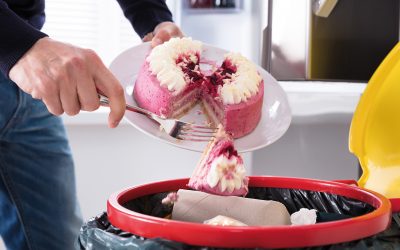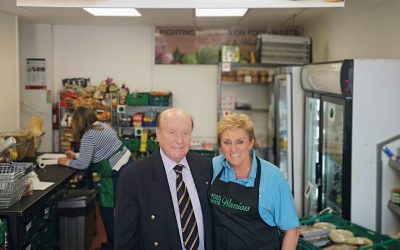Some time around the middle of 2018, Foodshare, Maidenhead’s food bank charity, provided its one millionth meal!
This landmark number is a testament to the help the charity has provided since it started over seven years ago, and to the continued goodwill of individuals and organisations who so kindly give food, money or their time.
Foodshare provides meals for people who are struggling to eat properly. It provides food, including fresh food, fruit and vegetables, to individuals and families who are unable to afford a proper meal every day for themselves or their children.
Their primary focus is on providing nutritious food and they aim to provide a minimum of three days’ food for a family in need, more if they have stocks.
During term time, they also provide breakfasts for pupils at schools whose families are unable to afford to feed them properly.
Did you know that @FoodbankBerks #Maidenhead Food Bank has delivered more than 1 million meals and helps 350-400 people each week? Thanks to our volunteers who help out regularly. pic.twitter.com/fESnrosBBy
— M’head Bridge Rotary (@MheadBRotary) June 24, 2019
Twelve months ago another issue was identified; what happens during school holidays when children don’t have access to cooked school dinners? The truth is that they often go without.
With this in mind, Foodshare started a new project providing a meal two times a week during the school holidays for those in need.
The charity’s services are provided week in, week out, without fail. This is a very important facet of this project since so many people in difficult situations depend on what they do.
This kind of reliability is down to the wonderful volunteers who give up their time to help, many of them members of Maidenhead Bridge Rotary, who have supported the charity since the Rotary club was formed in 2012.
Through the food bank, community meals, school breakfast club supplies and other projects, Foodshare helps between 350 to 400 people each week.
People are often surprised when they learn of the support on this scale in a town like Maidenhead.
However, the truth is that we help just a small fraction of those in need.
People are often surprised when they learn of the support on this scale in a town like Maidenhead.”
Last year, the Child Poverty Action Group published by parliamentary constituency the number of children living in poverty (according to the government’s definition).
The number for the Maidenhead constituency was close to 3,000.
Factor in the rest of their family members, plus other households without children, and the total number of people must be several thousand.
Maidenhead Bridge Rotary has worked with Foodshare for over six years in various ways.
Members of the club volunteer every Wednesday and Saturday to collect donated food from various points around the town, take it to the storage unit and get it on the shelves ready to hand out.
These ‘Rotarians at Work’ are often seen in local supermarkets running promotion days to encourage members of the public to donate an item of food whilst doing their shop, and regularly use money from their charity account to buy much needed stock when the shelves are running empty.
However, the club has also been supporting them with practical issues such as helping to devise the food stacking/ storage process to ensure all donated food is distributed to families in need.
It was identified that a proper system of simply loading food onto the distribution shelves meant that donated items were having to be thrown away as they were going out of date, so Maidenhead Bridge Rotary stepped into action.
Spending a whole day clearing all the shelves, labelling food packages, putting up better shelf signage etc. and creating an easy food processing system meant the charity was more streamlined and, more importantly, all donated food was being given out and not going to waste.
This is a fabulous example of Rotarians using their knowledge and business experience to really have an impact on a charity.
With Rotary’s connections, not only should we doing more work with grassroots organisations such as Foodshare, we should also be lobbying the government to do more.”
Continuing from that project, members’ skills and expertise have revitalised and modernised the brand of Foodshare, making it fresh and clear.
The reason for this was to allow for the message of the charity to be seen more prominently whether it’s on a t-shirt, flyer or donation box.
We have also worked with them to strengthen their marketing message to help them reach out to a wider audience to enable them to support more local families who cannot afford to feed themselves.
Over the years, club members have donated over 2,290 volunteer hours to the project, using the minimum wage that equates to more than £18,800.
This is just one of the ways our club tries to make a difference to our community and I am very proud of the contribution our club members have made to help local people who have hit a difficult period in their lives.
We wish the numbers who need to seek the help of Foodshare would fall, but that doesn’t look like happening any time soon. So sadly, it’s clear we need to keep on doing what we are doing.”
Surely, having access to food is a basic right, particularly when living in a westernised society; in my opinion this is an area that Rotary should be doing more to tackle.
How can we expect the future leaders of the world to achieve their full potential if they are going to school hungry? With Rotary’s connections, not only should we doing more work with grassroots organisations such as Foodshare, we should also be lobbying the government to do more.
We wish the numbers who need to seek the help of Foodshare would fall, but that doesn’t look like happening any time soon. So sadly, it’s clear we need to keep on doing what we are doing.


























































